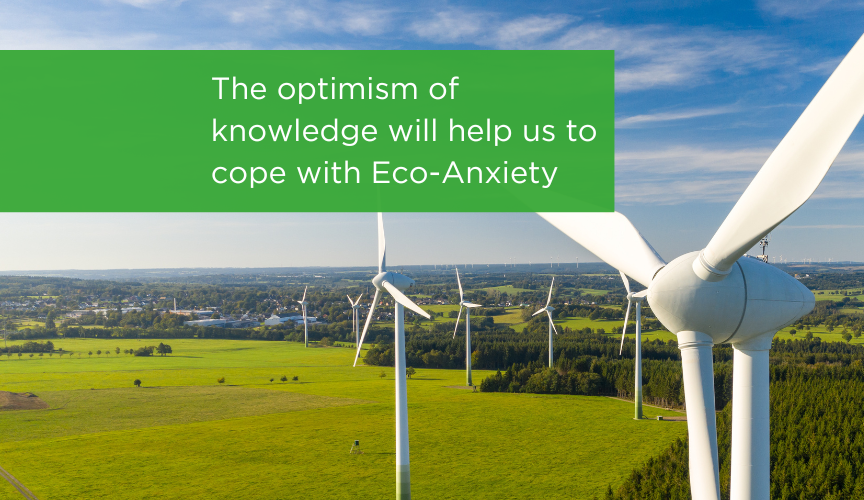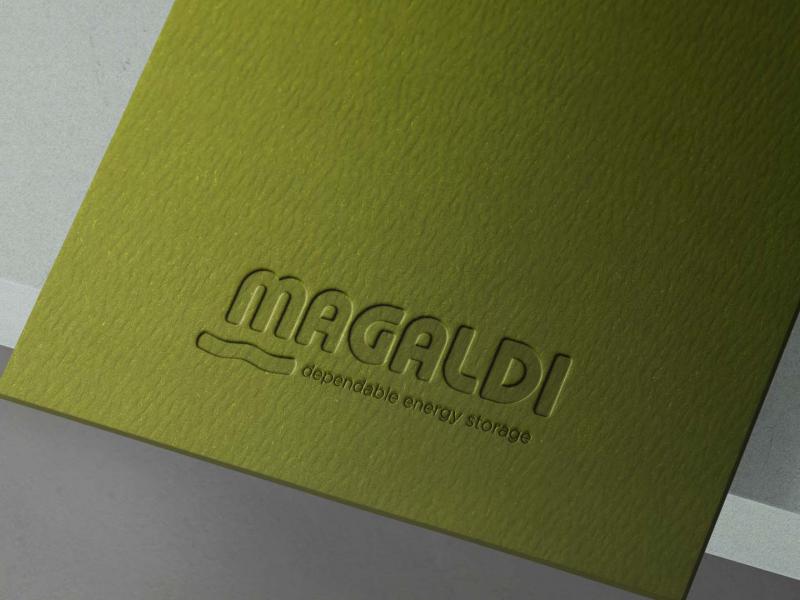
by Letizia Magaldi, Vice President Magaldi Green Energy
In a world gripped by eco-anxiety, the ever-pressing issue of climate change looms large. The dire warnings and distressing images of a planet in peril can leave us feeling overwhelmed and powerless. However, it's essential to remember that even in the face of such formidable challenges, there is room for optimism.
But let's start from the beginning: what is eco-anxiety, and what impact is it having on the new generations?
Eco-anxiety, let's try to define it
Eco-anxiety is a condition linked to general anxiety, characterized by physical symptoms and future-oriented apprehension, with a specific focus on concerns related to climate change and consequences of global warming. Numerous studies have identified a range of negative physical and emotional responses associated with eco-anxiety, such as physical ailments, panic attacks, irritability, weakness, sleep disturbances, sadness, depression, fear and uncertainty .
Today, science tells us that there are even two distinct reactions, primarily among Generation Z individuals born in the first decade of the 21st century, when it comes to experiencing two additional eco-emotions: eco-depression and eco-anger. These emotions show differing levels of activation and behavioral responses. Eco-anger, for example, is associated with a stronger inclination towards engaging in pro-climate collective actions.
Ecoanxiety, a phenomenon to be taken into account
Whether there is an agreement on the definition of eco-anxiety or considering the ongoing debate about whether it is a disorder or, on the contrary, a healthy concern for the well-being of life on our planet, the data highlights a phenomenon to be taken into account: more than 70% of young individuals experience a sense of despair when confronted with the climate crisis. Additionally, up to 56% hold the belief that humanity's fate is sealed. However, only 26% feel confident in their understanding of how to actively contribute to resolving this challenge.
Many gives low ratings to government actions regarding climate change and indicates that they felt more betrayed than reassured. Feelings of climate-related anxiety and distress were linked to the perception of insufficient government action and the consequent sense of betrayal.
Climate change and the global nervous breakdown
Some have spoken of Europe's nervous breakdown. It happened last summer when In Italy, a young woman, named Giorgia Vasaperna, overwhelmed by extreme heat waves, devastating wildfires, and intense rainfall, tearfully shared her eco-anxiety with our country's environment minister during Giffoni children's film festival in July. She expressed her fear of a climatically apocalyptic future and questioned the wisdom of bringing children into such a world. The emotional exchange prompted the minister, Gilberto Pichetto Fratin, to also become emotional, acknowledging his responsibility towards both present and future generations in the face of the climate crisis.
As early as 2021, climate activist Greta Thunberg had talked about the feeling as a "quite natural response, because, as you see, as the world is today, that no one seems to care about what's happening, I think it's only human to feel that way"
Moreover, It is real that human actions are causing an unprecedented rate of destruction to the natural world and reputable international research organizations discuss the potential sixth mass extinction as a conceivable event.
Knowledge and innovation are the keys
The key to addressing eco-anxiety is knowledge, and with knowledge comes empowerment. Rather than succumbing to fear, we must recognize that we possess the empathy, the tools and technologies to combat climate change effectively.
One of the most significant contributors to climate change is industrial emissions, particularly from energy-intensive sectors. However, the path to decarbonization is clearer than ever, thanks to a multitude of renewable technologies. Wind, solar, hydro, and geothermal power sources are readily available, offering cleaner alternatives to traditional fossil fuels. As these technologies continue to advance, the transition to renewable energy becomes not just feasible but increasingly cost-effective.
Magaldi Green Energy's game-changing case
We hope that Magaldi Green Energy, with its forward-thinking approach, exemplifies the spirit of this optimism in the face of eco-anxiety. From its inception, the company has focused on developing innovative solutions that harness renewable energy sources to reduce carbon emissions. Their commitment to research and development has yielded groundbreaking technologies that can revolutionize industries.
The message is clear: empathetic knowledge is the antidote to anxiety. By understanding the potential of renewable technologies, we can work towards a future where industries are no longer a burden on the environment but a driving force for sustainability. In this scenario, Magaldi Green Energy aspires for being a beacon of hope, we try to reminding, first to us, that the solutions to our ecological challenges exist; we need only apply them with a sense of purpose and foresight.
One shining example of this optimism in action is our Magaldi Green Thermal Energy Storage, a world first technology developed on the belief that knowledge conquers fear and that solutions must exist for a sustainable future.
Eco-anxiety as a natural response to the pressing issue of climate change
In conclusion, eco-anxiety is a natural response to the pressing issue of climate change, but it need not paralyze us with fear. Instead, let it motivate us to seek knowledge and embrace the opportunities that renewable technologies provide. Magaldi Green Energy's commitment to a sustainable future want to be an inspiring example of how optimism, knowledge, and innovation can overcome the most daunting challenges.
Information, as well as the activism integrated into daily life, serve as potent weapons against the climate change crisis. This is why Magaldi Green Energy is placing its bets on educating the next generation across the globe, offering formative and employment prospects, and cultivating the future innovators who will design technologies aligned with a greener and more habitable planet.
Together, we can build a brighter, more sustainable world for future generations. The solution lies in never giving up, being present, having faith, and building the world we want to live in.



